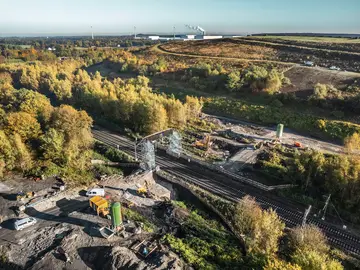Garden of the future in Dortmund: Spesa involved in new bridge construction for international garden exhibition
- 2027 International Garden Exhibition (IGA) to be held in Ruhr area
- Expansion of Dortmund’s local recreational area Deusenberg for garden exhibition
- Spesa carries out foundation and soil improvement measures for new construction of a pedestrian bridge
Dortmund, Germany – Impressive mining towers, tall chimneys and abandoned industrial brownfields: these monuments all attest to the eventful industrial history of the Rhine-Ruhr metropolitan region. But in these sites that once were home to mining and heavy industry, nature has been regaining ground for years now with the creation of new recreational areas, gardens and parks. For the 2027 International Garden Exhibition (IGA), the Ruhr region will once again pose the question “What should tomorrow’s world look like?”, addressing future topics through tangible, livable experiences. Gardens of the future represent a core element here, as central event locations that reflect the core topics of gardens, environment, climate and energy.
A second chance for a former landfill
Dortmund’s garden of the future is currently being constructed in an unusual location: the former landfill site of Deusenberg. Since the start of the 20th century, industrial and household waste was deposited here, followed by remnants of houses and rubble during World War II. Landfill operation was ultimately discontinued in 1992, but a considerable mountain had piled up by then: Over an area of 44 ha (approx. 62 soccer fields), roughly 11 million m³ of material towered up to heights of 50 m. After sealing off the landfill, extensive revegetation and recultivation with 150,000 trees, Deusenberg was made accessible to the population as a recreational area in 2004. Since then, the area has enjoyed great popularity and continues to play an important role for nature conservation and species protection. As a scenic overlook, it also offers a fantastic view of Dortmund.
Local recreation area with a future
The 2027 International Garden Exhibition represents another step towards enhancing the Deusenberg as a local recreation area that is already underway. The new park facility will offer more options for leisure and recreation, improving the quality of life in the surrounding area and making an important contribution to structural change and urban development. This project involves extensive measures to enhance and connect the Deusenberg, the industrial monument of the former Hansa coking plant and the Mooskamp local traffic museum. A key component of these measures is a bridge that will connect the Deusenberg across adjacent railways with the new coking plant park and the former Hansa coking plant.
Spesa constructs foundation for pedestrian bridge
SPESA Spezialbau und Sanierung GmbH was tasked by the city of Dortmund to carry out foundation and soil improvement measures for the new building of the “Haldensprung” pedestrian and bicycle bridge. “For the foundation, we will install a total of 140 micropiles on the individual foundations of the new bridge,” explains Sebastian Otto, Project Manager at Spesa. “We will also execute 2,100 m of soil improvement using the low-pressure erosion method developed by Spesa.” One KLEMM KR 805 and one KLEMM KR 801 drilling rig are in use for the specialist foundation engineering works, as well as three employees per drilling rig. Because work is being carried out on an undeveloped site, it was also necessary to establish the full electrical and water supply. “We also constructed a temporary scaffolding overpass for pedestrians over the adjacent tracks,” continues Sebastian Otto. The work started in May 2024 and is expected to be completed by February 2025. This will lay the foundation for Dortmund’s garden of the future, which is sure to inspire visitors in 2027.
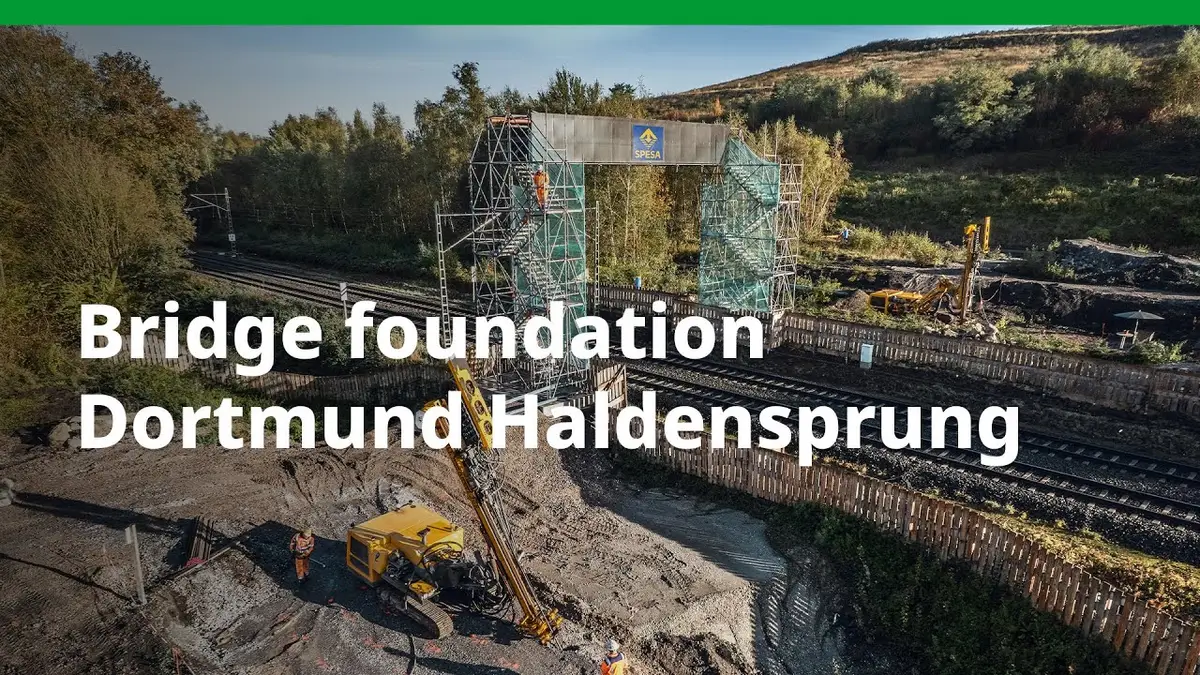
In order to display the video on the US platform YouTube, we need your consent to the associated data processing, as described in our data protection declaration.

Press Images
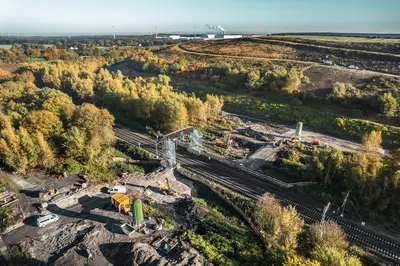
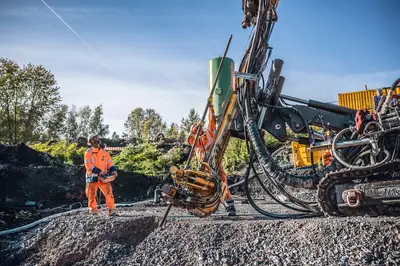
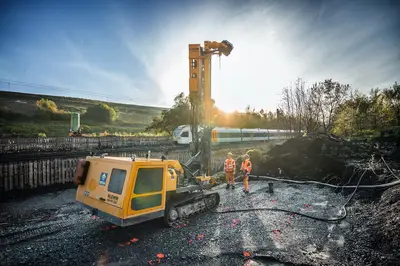
Download
Your Contact

